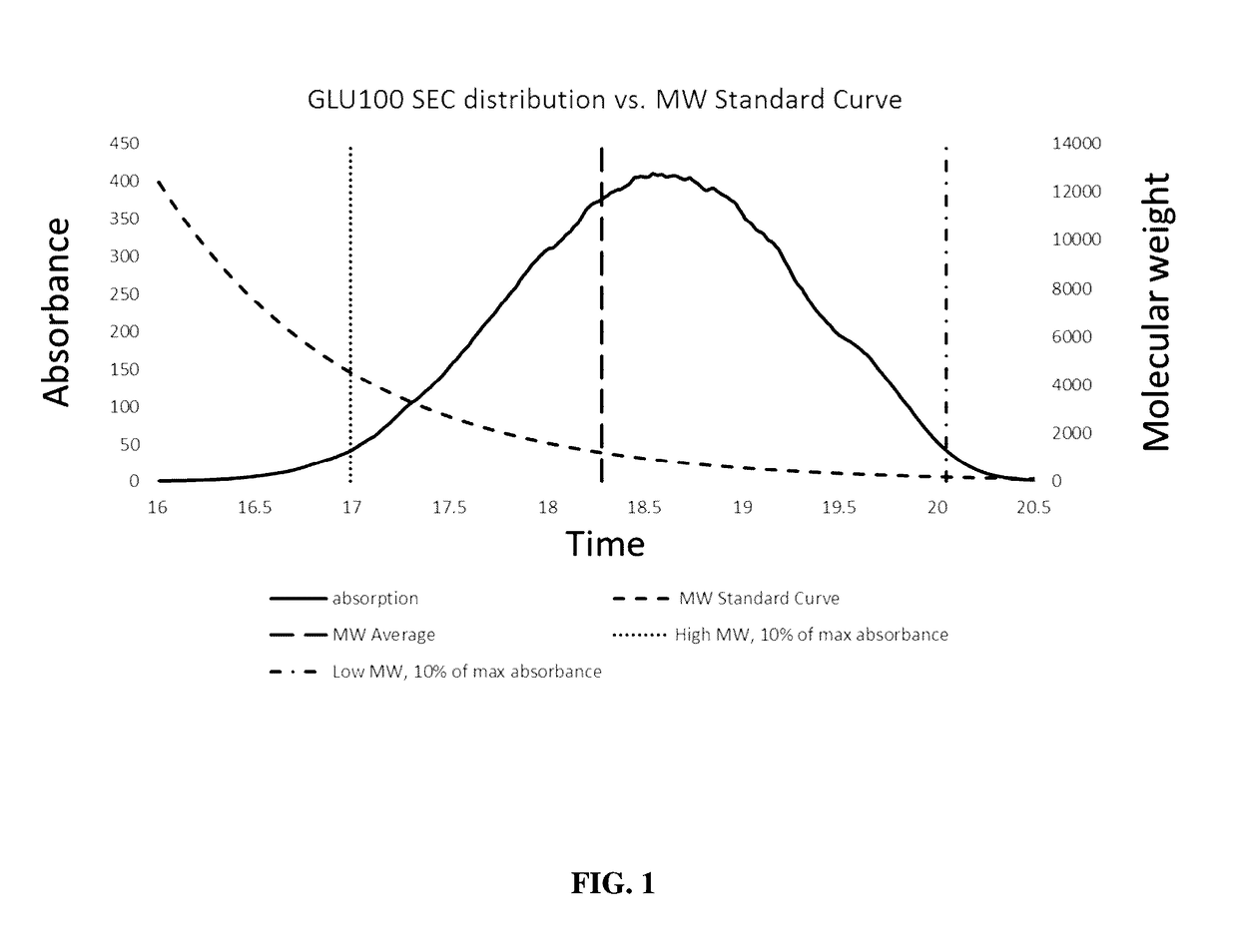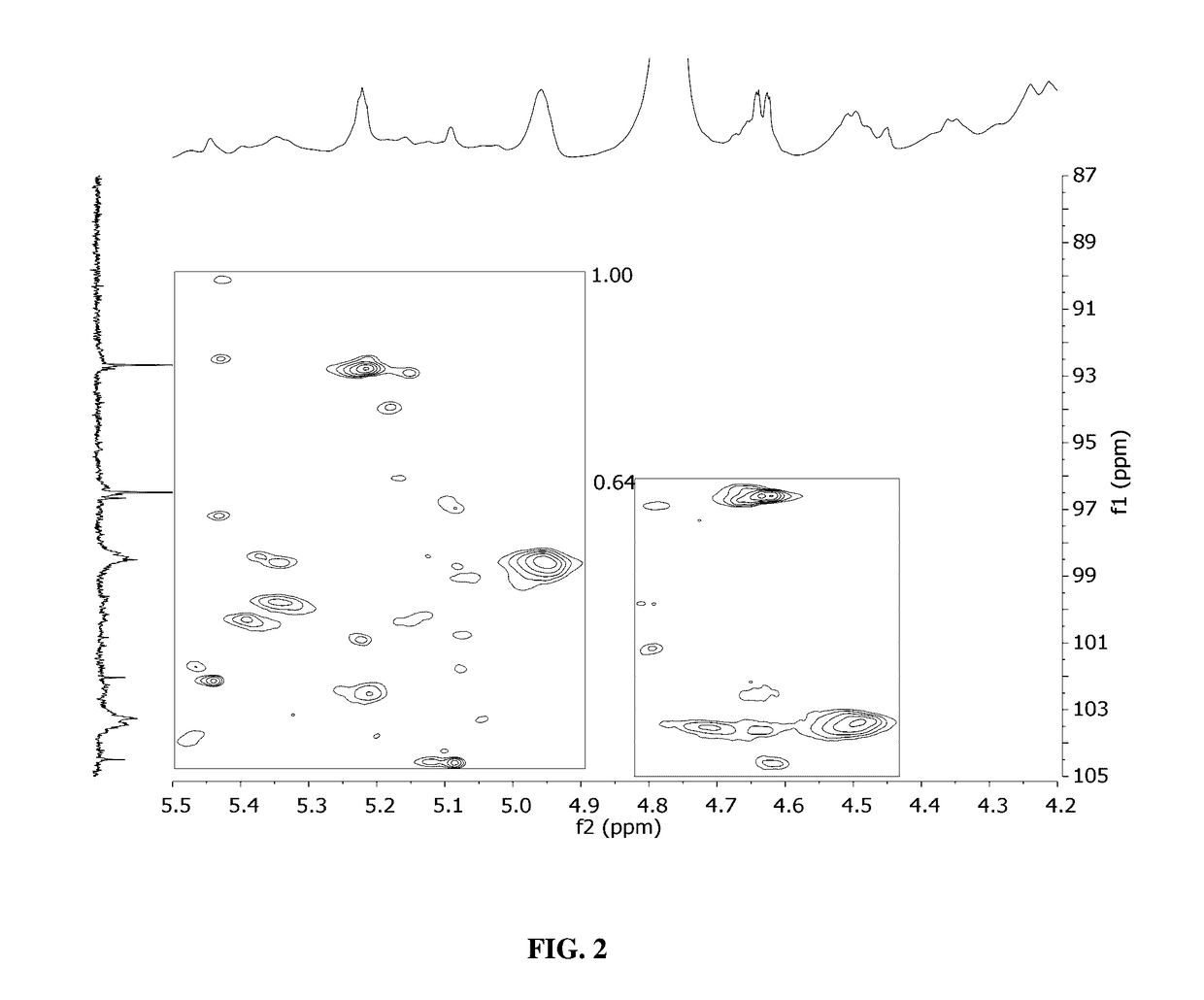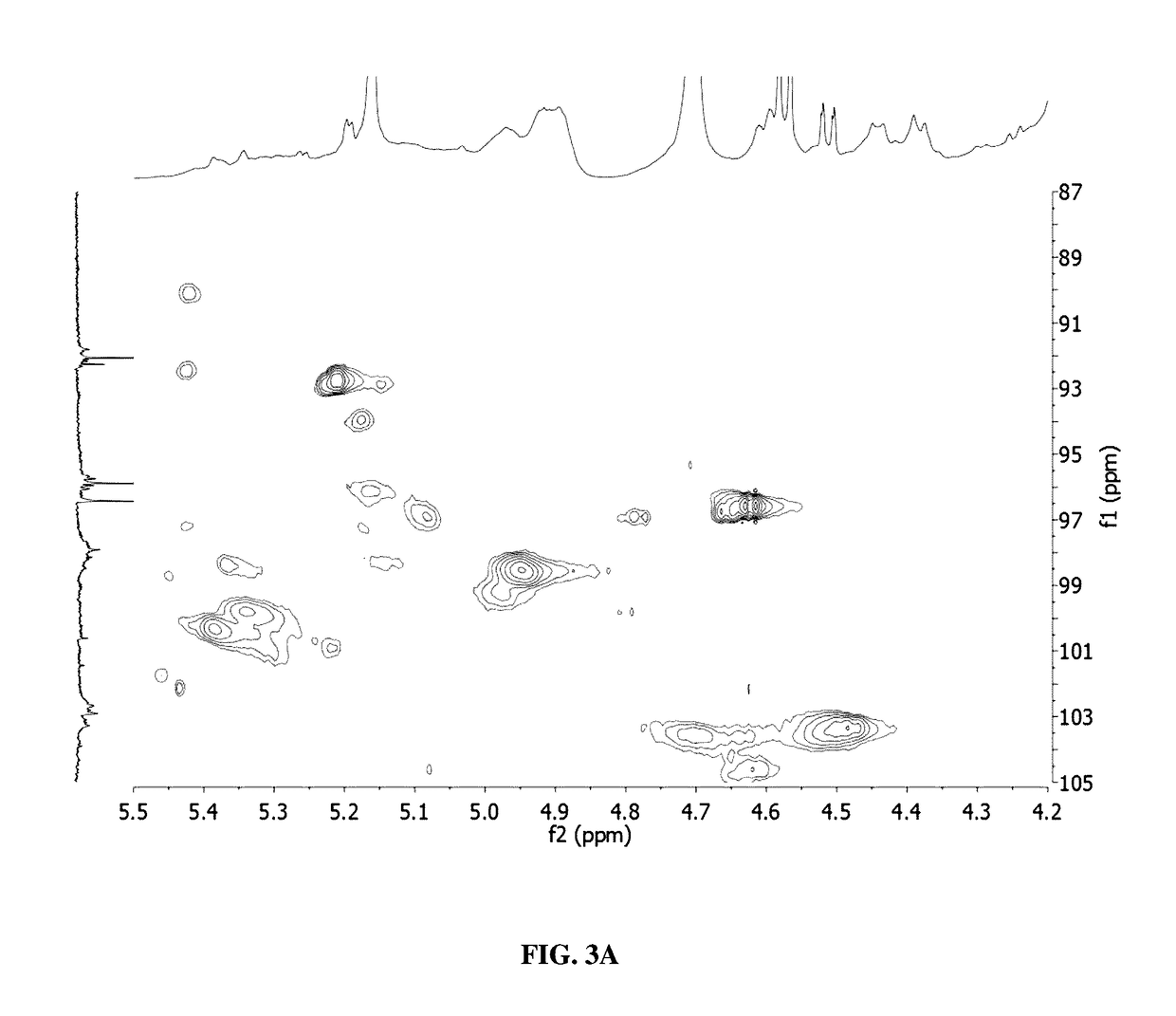Glycan therapeutics and related methods thereof
- Summary
- Abstract
- Description
- Claims
- Application Information
AI Technical Summary
Benefits of technology
Problems solved by technology
Method used
Image
Examples
example 1
on of Glycan Therapeutics
[0607]To a round bottom flask equipped with an overhead stirrer and a jacketed short-path condenser was added one or more mono- or disaccharides along with 3-20% by dry weight of one or more of the catalysts described in U.S. Pat. No. 8,466,242 and WO 2014 / 031956, which are incorporated herein by reference in their entirety. Water or another compatible solvent (1.54 equiv) was added to the dry mixture and the slurry was combined at approximately 100 rpm using a paddle sized to match the contours of the selected round bottom flask as closely as possible. The mixture was then heated to 80-155° C. Once the solids achieved a molten state, the vessel was placed under 10-1000 mbar vacuum pressure. The reaction was stirred for 30 minutes to 8 hours, constantly removing water from the reaction. Reaction progress was monitored by HPLC. When sufficient oligomerization had occurred, the stirrer was shut off, the reaction was cooled to room temperature and vented to atm...
example 2
[0612]Oligo- and polysaccharides synthesized as in Example 1 were dissolved in deionized water to a final concentration of 25-50 Brix. The material was then exposed to at least 2 mass equivalents of Dowex Monosphere 88 ion exchange resin. Exposure may occur by swirling in a flask at 120-170 rpm or by filtration through a wet slurry packed column as long as the residence time is sufficient for the solution to achieve a final pH between 3 and 5. The oligomer solution was isolated by filtration (as in the case of swirled reactions) or elution (as in the case of column filtration) and the process was repeated with Dowex Monosphere 77 ion exchange resin in an analogous fashion until the solution pH was above 5.5. Finally the solution was exposed to Dowex Optipore SD-2 Adsorbent decolorizing resin until the solution was sufficiently clarified and filtered through a 0.2 micron filter to remove residual resin and resin fines. The final solution was then concentrate...
example 3
ughput Preparation of Glycan Therapeutics at Small Scale
[0613]The oligomers and polymers typified in Example 1 were synthesized in a parallel fashion in 24-, 48-, or 96-well plates or similarly sized arrays of 1 dram vials housed in aluminum heating blocks. In this example, all liquid transfers were handled by a programmable robot or manually using calibrated pipettes. To each vial or well was added 20-100% by dry weight of one or more of the catalysts described in U.S. Pat. No. 8,466,242 and WO 2014 / 031956. The plate or heating block was placed uncovered in a vacuum oven heated to 50 to 150° C. under a vacuum of 10-800 mbar. The oven vacuum pump was protected by a two-stage condenser consisting of a recirculating chiller trap followed by a dry ice / acetone trap. The plates or blocks are heated for 30 minutes to 6 hours under elevated temperature and reduced pressure without stirring. After a pre-established period of time, the oven was vented to atmospheric pressure, the plates or b...
PUM
| Property | Measurement | Unit |
|---|---|---|
| Temperature | aaaaa | aaaaa |
| Fraction | aaaaa | aaaaa |
| Fraction | aaaaa | aaaaa |
Abstract
Description
Claims
Application Information
 Login to View More
Login to View More - R&D
- Intellectual Property
- Life Sciences
- Materials
- Tech Scout
- Unparalleled Data Quality
- Higher Quality Content
- 60% Fewer Hallucinations
Browse by: Latest US Patents, China's latest patents, Technical Efficacy Thesaurus, Application Domain, Technology Topic, Popular Technical Reports.
© 2025 PatSnap. All rights reserved.Legal|Privacy policy|Modern Slavery Act Transparency Statement|Sitemap|About US| Contact US: help@patsnap.com



